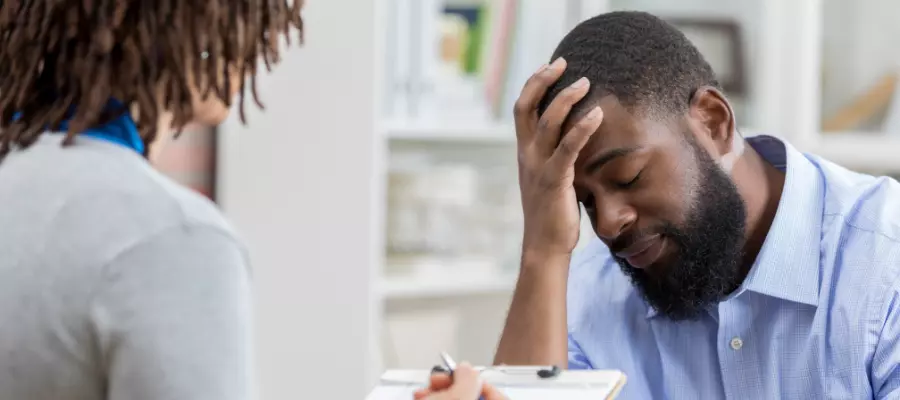
Men’s Mental Health
“I believe the biggest stigma right now, with mental health is that a lot of men are not talking about it” Mauro Ranallo. In 2021, it was estimated that about 18% of men in the United States had some type of mental illness. Unfortunately, in the United States, 65% of men do not ask for the help when needed. Men face challenges when asking for help because they are taught to pursue any self-reliance. The fear of being incompetent or seen as less capable of what a “Man” should be. Growing up the terms “man-up” were often heard within the family system. The “idea” of being a man was often associated with being loud, dominant, and close minded with their feelings. “Men shouldn’t be overly emotional”. At what point in time did society ask men to shut off their feelings and encourage them to process their emotions internally. To feel as if they aren’t enough or won’t live up to others’ expectations. Whether it is culturally, financially, emotionally, everyone has pain and trauma. Each year, November is dedicated to men’s mental health. It shouldn’t be a month but an everyday awareness where men can redefine their own mental schema of vulnerability. Any predisposed definition that was placed by society in a man’s mind can be redefined by what they deem appropriate. Men should be encouraged to discuss their fears, abandonments, griefs, and thoughts. It should never be considered as “complaints”.
As a clinician, I have seen men uptake negative self-talk. Evenwhen it comes to vocalizing their feelings. The pressure and contradicting thoughts fill their head while they attempt to embrace their vulnerability. Breaking down these thoughts and barriers often take us back to early childhood and what they were taught. At times it was to not be afraid, to be strong and to not cry. How does a child begin to process those words and the definition behind them? No other definitions or words are given as they continue to age. At early adulthood, these thought processes begin to resurface and they are left with processing them on their own and reparenting themselves. Men deserve the love and patience to heal themselves in this world and to know that they are not alone. Speaking about awareness can aid in spreading the message, but showing other men how to be vulnerable can change the perception of those who need it.


